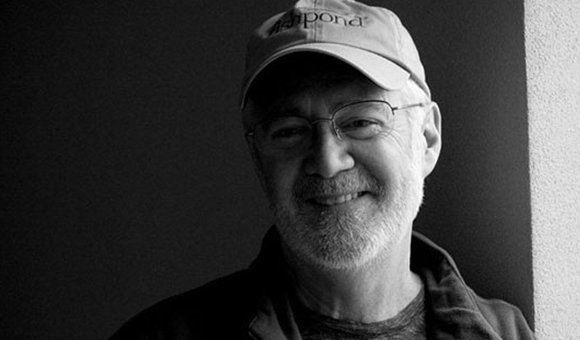
One of the best writing teachers I?ve ever had is someone I never took a class from. This isn?t a tricky paradox, but the simple truth: I?ve learned more from Jack Driscoll than almost anyone else, in spite of the fact that I somehow managed to never take a workshop with him at the Interlochen Arts Academy.?Bad luck and my ill-founded suspicion that I might be a poet kept me out of Jack?s classes when I was a student at the Academy, but good luck has allowed me to keep learning from him over the years, through letters and the occasional dinner when I?m fortunate enough to find myself in northern Michigan.?All along I?ve kept reading his work, the novels and the stories.?Long after I?ve abandoned all hope of writing poetry myself, Jack?s work continues to teach me about the beauty and strength of fiction written by ear, through awareness of the rhythm and tone of the sentence. When I talk to students about the importance of paying attention to language as well as story, I often find myself reading aloud the near-scannable first sentences of Jack?s story ?Prowlers?:?
There?s a ladder that leans against the back of the house, a sort of stairway to the roof where Marley-Anne and I sometimes sit after another donnybrook. You know the kind, that whump of words that leaves you dumbstruck and hurt and in the silent nightlong aftermath startled almost dead.
What else have I learned from Jack??How to treat my students not as apprentices but as fellow writers.?How to devote myself to the work and worry as little as possible about publication.?These are lessons that continue to need learning, as does this one: to value your characters as complicated individuals irreducible to stereotype.?Most of Jack?s fiction is set in the small towns along the coast of Lake Michigan, a poor and isolated region that takes on, in winter, an almost lunar bleakness.?His characters, mostly working-class men and women alternately baffled and amused by the influx of summer tourists, are drawn with compassion, insight, and sensitivity.?Considering his great success in depicting this neglected corner of the Midwest, he seemed like the perfect candidate to inaugurate this series of interviews with writers of rural fiction, undertaken in partnership with The Art of the Rural.?In this series, I will speak with writers who come from, live in, or tell stories of rural America about the aims and preoccupations of their fiction.?We will address their relationship to their material as well as craft-related questions about the strategies and methods that inform their writing.
Jack Driscoll is the author of four poetry collections, four novels, and two story collections. His work has appeared widely in journals including Poetry, The Georgia Review, The Southern Review, Ploughshares, Missouri Review, and twice in the Pushcart Prize anthology. Among his many awards, the Pushcart Editors? Book award, the AWP Short Fiction award, and the Barnes & Noble Discovery award. He currently teaches fiction workshops in Pacific University?s low-residency MFA program
Interview:
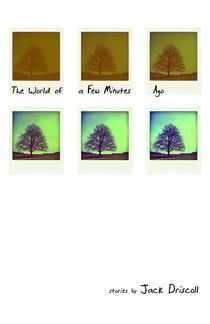 Mary Stewart Atwell: In the years that you?ve lived in northern Michigan, the tourist industry has boomed. In the lakefront communities, it?s become as common to see a BMW as an old pickup, and to varying degrees that gentrification is a theme reflected in the stories of The World of a Few Minutes Ago.?In ?The Dangerous Lay of the Land,? a Native American teen, raised in a trailer park, spends an intense evening with her well-educated and cultured driver?s ed teacher; in ?Prowlers,? Reilly Jack and his wife Marley-Anne make a hobby of breaking into million-dollar houses.?With so many new people moving into the region, is northern Michigan particularly prone to the kind of cultural collision that you describe in these stories?
Mary Stewart Atwell: In the years that you?ve lived in northern Michigan, the tourist industry has boomed. In the lakefront communities, it?s become as common to see a BMW as an old pickup, and to varying degrees that gentrification is a theme reflected in the stories of The World of a Few Minutes Ago.?In ?The Dangerous Lay of the Land,? a Native American teen, raised in a trailer park, spends an intense evening with her well-educated and cultured driver?s ed teacher; in ?Prowlers,? Reilly Jack and his wife Marley-Anne make a hobby of breaking into million-dollar houses.?With so many new people moving into the region, is northern Michigan particularly prone to the kind of cultural collision that you describe in these stories?
Jack Driscoll: Change, of course, is time related, and I?ve lived now for thirty-seven years up here in the northern provinces, long enough to have witnessed a literal transformation of the place itself.?When I first arrived in 1975 there were, as I remember, no full stoplights, and so at best we had to slow down a bit for those blinking yellows, and the spaces between them mostly farmland and uninhabited coastline.?Somewhat barren but not as if ?creation had stopped halfway through the third day,? to pilfer from Whitney Groves.
Because of the region?s great beauty, and the town?s gentrification, our status as a destination?via the New York Times and elsewhere?has coordinated an entirely new look.?Coffee shops on every corner, and upscale restaurants, film and literary festivals, organic co-ops and farmers markets, and the population during the summer months increasing tenfold.
To varying degrees, cultural collision does occur.?Though those inherent hostilities are not, I think, so directly?or at least not consciously so?confronted in my stories.?The focus for me is always something else, by which I mean that tension created by what a place/community offers and what it can?t possibly provide.?It?s that long-standing goldfish metaphor, that you can grow only as large as your surroundings.?And what happens, with both Marley-Anne and Geneva [in ?the Dangerous Lay of the Land?], is that some imaginary ?elsewhere??and conceived in direct proximity to those ?well-educated? outsiders that you mention?allows each protagonist to transcend the rural confines or enclosures, be it the trailer park, or the tiny two-bedroom starter ranch.?It?s not a geographical flight, per se, but rather one of fantasy and desire, and thus the drama played out more often than not in the character?s mind.
From what I know of your background?you grew up Catholic in Massachusetts?most of the characters who inhabit The World of a Few Minutes Ago are fairly different from you in the details of their biographies: they?re working class, probably Protestant, probably conservative.?Did you make a decision to focus on this population, or are they just the people who happen to live inside the stories you want to write?
After eight years in college I ended up insulating crawl spaces at midnight, a second job after roofing all day. Or leveraging trusses into place, or hauling bricks and cinder blocks for the masons.?One summer I drove a Ding Dong ice cream truck, then worked that fall and winter in a paper mill.?Washed dishes at an Italian restaurant, landscaped, painted houses, cut and split firewood, jobs that kept me afloat for those three years after my degree-taking, and before I was hired to teach creative writing at Interlochen Center for the Arts in 1975.
My father owned a bar, the Elm Caf?, in Holyoke, Massachusetts, where he worked sixteen hours a day, 364 days a year.?And so I know more than a little about being blue-collar, having experienced that life not as an invented reality for my stories, but rather as a lived one.
The poet William Matthews says, ?I try to write as well as I can / what it feels like to be human,? and I labor hard to channel that same desire or transfer of emotion via these working class characters who populate my short stories.?Not entirely, of course.?The title story of my new collection, ?The World of a Few Minutes Ago,? is told from the point of view of a worldly seventy-seven-year-old former AP photographer.?And ?Long After the Sons Go Missing? from the point of view of a sixty-one-year-old businessman, well-educated and owner of his own company.
But yes, more often than not my inclination has been toward characters living somewhere other than in suburbia or in urban areas, or even in university towns.
The cold of northern Michigan is a constant presence in these stories.?Anyone who has spent a winter in the upper Midwest knows that the cold is often all you can think about, but I wondered if you made a conscious choice to work the cold, and the characters? battle against it, into this collection.
Here?s our standing joke: we have three seasons in northern Michigan?July, August, and winter, and in 2010 we endured an official 209 inches of snow.?Place forms character.?Or, as Ortega y Gasset says, ?Tell me the landscape in which you live and I will tell you who you are.?
Up north this protracted winter season overlays and outlines a terrain as gorgeous as it is terrifying, empty, cut-off, unforgiving.?I?ve come to love such extremes, and how these conditions conspire to define behavior.?As the teenage narrator in ?That Story? says, ?I?m eye-level with the snowdrifts that the wind has sculpted, the temperature single-digit at best, and it?s beyond me why I say what I say, but I do, inviting trouble of a magnitude that we don?t need and yet sometimes covet.?
Eliminate this frozen landscape and the story ceases to exist.?It?s the nature, I suppose, of a writer?s sensibility with a particular place, where the characters? inwardness is informed by all that surrounds them in the actual physical world in which they operate.
Nothing comes more naturally?and less self-consciously?to me than setting my stories here, where I?ve now lived for thirty-seven years.?Not to mention the wildness of such a terrain, which I?ve always, from the time I was a little kid, craved, the woods and the waterways.?And why writers such as John Muir and Henry David Thoreau have been so important for me.
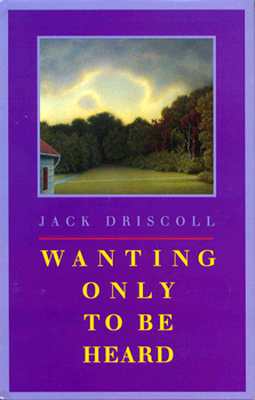 This is your second book of short stories. Wanting Only to Be Heard, published by the University of Massachusetts Press in 1992, received the AWP Short Fiction Award.?How have your preoccupations, your style, and/or your writing habits changed since that first collection?
This is your second book of short stories. Wanting Only to Be Heard, published by the University of Massachusetts Press in 1992, received the AWP Short Fiction Award.?How have your preoccupations, your style, and/or your writing habits changed since that first collection?
It has been twenty years between the publication of Wanting Only to Be Heard and The World of a Few Minutes Ago.?Clearly there are overlaps, similarities, but I?d like to believe?and do?that the recent stories are more carefully textured, more palpably resonant linguistically.?As you know, I began writing as a poet.?And so my attention to the sentence is not unlike the angle or attention I paid to the line, listening hard, the ear an eye that allowed me?I hope?to see deeper and more clearly into the emotional core of the story.
If our strengths are also our weaknesses, as Charles Simic suggests, then what I?d like to believe is that my lyric leanings or tendencies now serve the narrative movement in ways I hadn?t quite discovered in the earlier book.
As for my writing habits??They haven?t changed at all.?I?m an inordinately slow writer.?So slow, in fact, that my friend Mike Delp announced to an audience some years back that, ?Jack Driscoll is the slowest writer I know; he moves at the pace of an ice age.??To compensate I keep my backside in the chair.?I ?stay in the room? and over time that next story somehow, and against the odds, gets written.?What I tell my students is that any attempt to formulate a strategy to make the process any easier will fail them miserably, and in about a thousand different ways.?And that talent?whatever amount we?re given?must discover its equivalent in a hard-core work ethic.?It?s the credo I live by.
You said in an interview with The Writer?s Chronicle that stories begin for you with the rhythm of a first line?that you begin with the sound, as befits your background as a poet.?Were there any poems that were particularly important to you as you were writing The World?
Yes, I did have a poem in mind while writing these new stories, which served as a unifying presence, given the motif of time that runs through the entire collection.?The poem is called ?Violence,? by Gregory Djanikian, and in it the speaker says, ?Nothing seems so improbable as the world of a few minutes ago,? the last half of that line later appropriated as the title of my collection.?One of those lucky finds that clarified, at least in part, what the stories were trying to tell me.
If sound comes first, do the characters come second??Where do characters come from for you??Do you find yourself noting observations about people you see every day??Do you keep a notebook?
It?s true that if I can?t hear it then I can?t write it.?And so it made perfect sense to me when I heard Robert Bly, who was visiting Interlochen thirty or so years ago, say, ?The eye reports to the brain, but the ear reports to the heart.??It?s one way in which the musicians have it over us.
But that song sung is always for me an expression of character.?And ?plot? or story the result of following these fictive inventions around, listening hard to what they say and don?t say, and waiting them out, no matter how long it takes, until finally they reveal to me their secrets.
I do keep notebooks, one for names alone: Ashelby Judge, Reilly Jack, Iwo Jakiella, Charlene Saint Ours.?Once I name a character it?s as if we?ve been introduced.?I then begin to know them, but not necessarily by way of direct and literal observation.?It?s never that calculated a transaction.
You retired from the Interlochen Arts Academy in 2009 after forty years of teaching, and you now teach in the low-residency MFA program at Pacific University.?How has the change in your schedule, from daily contact with students to infrequent but intense sessions during the residencies, affected your writing?
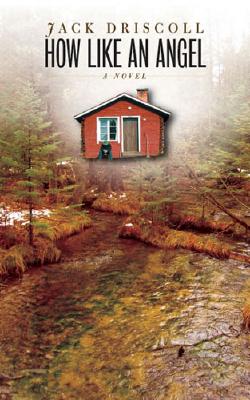 Wasn?t it Randall Jarrell who said he?d pay to be able to teach?? Conversely, a character in a Tim Gautreaux story claims that ?he?d rather spend eight hours a day with his tongue stuck on a hot pipe than teach at a college.??My sentiments remain with Jarrell, though I did step away from full-time teaching a couple decades ago, unable finally to get much writing done, and that 3:00 a.m. alarm feeling more and more like a frozen ice pick to the temple.
Wasn?t it Randall Jarrell who said he?d pay to be able to teach?? Conversely, a character in a Tim Gautreaux story claims that ?he?d rather spend eight hours a day with his tongue stuck on a hot pipe than teach at a college.??My sentiments remain with Jarrell, though I did step away from full-time teaching a couple decades ago, unable finally to get much writing done, and that 3:00 a.m. alarm feeling more and more like a frozen ice pick to the temple.
I was teaching five days per week, plus evening tutorials, three preparations each semester, and most weekends I found myself in my office, getting ready for that next class or responding to student work.?I simply could not find a way to lighten the load and so when I was offered a low-residency position, I accepted, and now my writing and my teaching are kept in better balance, each half made better for it.
As to how this has affected my writing??I?m rarely undone these days by impatience, by having too little time ?to remain at rest, in a room,? as Blaise Pascal says.
In ?This Season of Mercy,? a man ostracized by his community after he reveals local corruption dresses up in women?s clothes for the sole purpose of taunting and infuriating his neighbors.?It?s an act that seems both heroic and quixotic, an ambiguity reinforced by the fact that the story is told from the point of view of his teenage son.?I wondered what you thought this story?as well as ?Long After the Sons Go Missing,? in which a father of a gay son regrets his homophobia?has to say about small town intolerance for difference and dissent.
First of all, I am small town born and raised.?I try, whenever I sit down to write, to say what the lives of my characters are like, absent any commentary or political agenda.?What I?ve heard referred to as ?finger-pointing fiction.??Or, Samuel Goldwyn: ?If I wanted to send a message I?d use Western Union.?
That said, I suppose small communities do impose their own particular brand of censorship.?The margins are tinier, the parenthesis tighter, the codes of conduct/behavior less flexible perhaps, the insider/outsider distinction more easily identified.?That sense that if you weren?t born here you?ll never exactly be one of us.
If intolerance or homophobia becomes part of the story, it?s not to make a statement about rural landscapes, but it?s more a vehicle by which, in this case, the story talk beyond those boundaries and make, I hope, more universal my long-standing preoccupation with the relationships between fathers and sons.?Joyce promised Irish boys like me that we would in the end reconcile with our dads, and father/son stories might be my attempt to prove that theory true.
To stay with ?Long After the Sons Go Missing,? I was struck by a particular line when the point of view character thinks about the pleasure he?s always gotten from hunting: ?It?s the old ache of being invisible and alone that he craves, sealed off from the steady low-grade buzz and clatter of his life.??This story occurs almost entirely in flashback, as the hunter who has fallen out of his deer blind waits to be rescued or to die.?It made me realize that a lot of your stories are similarly interior, relying on narration rather than dramatization.?What would you say draws or inclines you to this meditative mode?
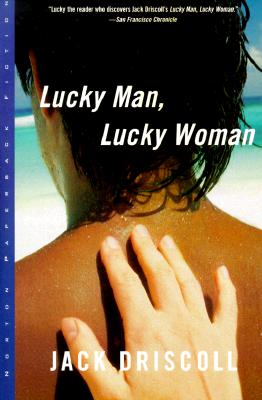 I love flashback, or that sense that there is no present without the past.?That the human mind is, in fact, stereoscopic, conceiving of time gone by and going by simultaneously.?Present time being amorphous and therefore clarified by where we?ve been, a map of sorts, a way to understand that our arrival ?here? has everything to do with where we?ve been.?Flashback, or the story of once, as my colleague and friend Mary Helen Stefaniak says,?and that sense of time passing, ?one moment / pulling out of the station on schedule,? as Edward Hirsch says, ?Another moment arriving on the next platform.??Or Alice Friman: ?For wasn?t / that death fingering the leaves / all summer??
I love flashback, or that sense that there is no present without the past.?That the human mind is, in fact, stereoscopic, conceiving of time gone by and going by simultaneously.?Present time being amorphous and therefore clarified by where we?ve been, a map of sorts, a way to understand that our arrival ?here? has everything to do with where we?ve been.?Flashback, or the story of once, as my colleague and friend Mary Helen Stefaniak says,?and that sense of time passing, ?one moment / pulling out of the station on schedule,? as Edward Hirsch says, ?Another moment arriving on the next platform.??Or Alice Friman: ?For wasn?t / that death fingering the leaves / all summer??
You asked earlier about poems I carry in my head, and one of my all-time favorites is Galway Kinnell?s ?The Road Between Here and There,? in which the speaker says, ?Here I sat on a boulder by the winter-steaming river and put / my head in my hands and considered time?which is next / to nothing, merely what vanishes, and yet can make one?s / elbows nearly pierce one?s thighs.?
There?s the speaker in deep rumination, double-elbowed, outthinking ?The Thinker.??And the nature of thought??Well, to figure some stuff out.?Which might be why Saul Bellow asks, ?What?s more interesting, the action that takes place in the mind or the action that takes place in the bedroom?? My preoccupation is with the former, though I might also argue that thought is just another dramatic arrangement or design, another way to access the story?s emotional center.
Links and Resources:
- Read Jeremiah Chamberlin?s FWR review of The World of a Few Minutes Ago.
- You can also visit the Wayne State University Press website to order a copy of Driscoll?s new collection.
- For more on Jack Driscoll and his work, visit the author?s Tumblr page.
- We also hope you?ll visit the Website for?The Art of The Rural, a non-profit organization working to gather a variety of perspectives on the state of rural arts and culture in American life. It aims to present the ways in which the rural, far from any romantic or pastoral notions of a separate and idyllic space, is deeply connected with the daily lives of all Americans.
justified season 3 custer scott walker restaurant week type 2 diabetes occupy congress juan williams
No comments:
Post a Comment
Note: Only a member of this blog may post a comment.